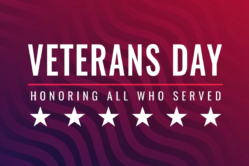Table of Contents
I was recently at a financial planning conference when I listened to a presentation by Natalie Choate, a prominent estate planning attorney from the Boston area. Her presentation, Lifetime Distribution Strategies for Your Client’s Retirement Benefits, probably would have put me to sleep if not for two very important things. First, Ms. Choate is a very gifted speaker. Her delivery kept even the most experienced planners entertained and focused on this topic. Second, estate planning is very important, to EVERY person. Let me repeat—estate planning is very important to EVERY. SINGLE. PERSON.
If you don’t think so, here are four reasons you should reconsider:
4 Reasons You Need an Estate Plan
1. To Make Things Easier on Your Family
Effective estate planning is hard and sometimes expensive. However, improper estate planning is harder for your loved ones, and definitely more expensive.
Although each family situation is unique, there is usually one right way, and many wrong ways, to plan your estate. In many simple cases, a good estate plan may be very inexpensive—basically the cost of a will, living trust, and some other basic estate planning documents that most families should have.
In some cases, a good estate plan may cost thousands of dollars. In all cases, bad estate planning (or no estate planning at all), WILL cost much more than good planning would have…usually by many more thousands of dollars than an estate plan would have cost.
Note: Estate planning is much less expensive for servicemembers, since you usually don’t have to pay for the cost of a will or Power of Attorney if you have access to base legal services.
2. You Have Assets
This could be things like money, investments, or a house. You could have a retirement plan, like a 401(k) or rollover IRA. The thing about estate planning is that you have to decide who gets all of these things before you die. This can get hard, emotionally and mentally, especially when you’re sitting in a lawyer’s office, and answering the question, “What if your children die? What do you want to do then?”
It’s tough, and it’s important. If nothing else, think about the money that would get wasted if the IRS gets involved, or your estate gets tied up in probate court. Depending on the complexity of your financial situation, you may want to consider consulting with a fee-only financial planner to help guide you through the process.
Remember, having an estate plan is part of your financial readiness.
Note: We’ve all heard the urban legend of the servicemember whose parents inherit his SGLI, or whose current wife and children are left with nothing because he never updated his dependency information.
Make sure it doesn’t happen to you – update the beneficiary on your life insurance policy.
3. Estate Planning isn’t an Immediate Need. Until it is.
You get one opportunity to get estate planning right. Fortunately, that opportunity is over your entire life. Unfortunately, you don’t know when your time is going to expire. Once you die, you don’t get a vote anymore, except for the last one that you cast. Make it count.
It doesn’t matter if you’re on deployment, or on leave. You can die at any time, so your estate planning needs to always be up to date.
4. Estate Planning is a Fluid Process
A will that you put together 20 years ago probably won’t do what you want today. If you’ve had children, gotten married, gotten divorced, or had any major life changes, you might want to think about whether your money is still going to the right place. Over my Navy career, I’ve heard so many stories (and personally witnessed a couple) where a Sailor passes everything to an ex-spouse or someone they absolutely did not intend to, sometimes leaving their intended beneficiaries without anything. Even if your life hasn’t changed, state and federal laws are always changing. What might have been wise a couple of years ago may not be the right thing to do today.
Note: Take 30 minutes every year to ask yourself these questions:
Is my dependency information up-to-date in DEERS? Are beneficiaries noted correctly on all of my accounts and policies?
- Does my SGLI (or VGLI) have the correct beneficiaries? What about another life insurance policy?
- What other accounts do I have that require beneficiaries? Accounts such as IRAs, 529 plans, and TSP all should have designated beneficiaries. Make sure they’re accurate.
- If I died today, would my will take care of everything that I want it to? Keep in mind that accounts with beneficiaries, joint accounts, and other jointly owned assets may pass outside of a will.
- Would my designated representative have the information they need to access all of my accounts and transfer them to the right place?
Take Action Now – Schedule an Appointment to Create a Will
What should you do? Don’t make it hard on yourself. Set up an appointment with your installation’s or command’s legal office to take care of the basics—will, power of attorney, etc.
If you’re working with a fee-only financial planner, that person should be able to help you address the financial aspects of your estate planning. You should especially look into your estate planning if you’re preparing for a major change—deployment, PCS, marriage, divorce, new children, or getting out of the military. Even if none of these are the case, take 30 minutes every year to go through your legal documents and make sure they reflect your wishes. You’ll be glad you did.
As always, this blog serves to answer your questions and address concerns. If you like this blog, please forward it to other people who may benefit. In the meanwhile, take charge of your life!




About the comments on this site:
These responses are not provided or commissioned by the bank advertiser. Responses have not been reviewed, approved or otherwise endorsed by the bank advertiser. It is not the bank advertiser’s responsibility to ensure all posts and/or questions are answered.